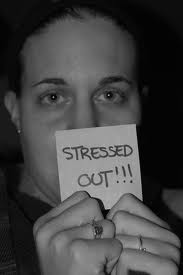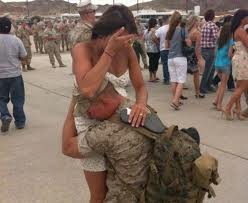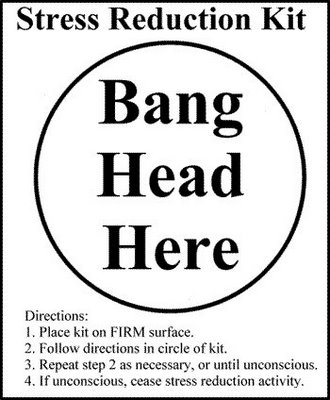www.UtVet.com/OtherEffectsOfTrauma.html
To start 2013, we want to make sure you know that knowledge is power. People experience a range of reactions following traumatic events. PTSD is just one of the effects of trauma.
 Other problems that often occur with PTSD include sleep problems, TBI and other physical health conditions, suicidal intent, grief, and anger. Co-occurring conditions are often associated with poorer health, such as reduced quality of life and increased use of healthcare. Read more about Co-occurring Problems. Remember: Recovery is possible. It is a gradual process with setbacks along the way.
Other problems that often occur with PTSD include sleep problems, TBI and other physical health conditions, suicidal intent, grief, and anger. Co-occurring conditions are often associated with poorer health, such as reduced quality of life and increased use of healthcare. Read more about Co-occurring Problems. Remember: Recovery is possible. It is a gradual process with setbacks along the way.
Learn more about common problems and reactions related to experiencing trauma such as depression, nightmares, sleep issues, and anger. Traumatic brain injury, (or TBI), pain and substance abuse are also common in Veterans.
These additional mental health problems can complicate treatment. For example: When a PTSD diagnosis co-occurs with depression and/or substance abuse problems, (including alcohol and smoking) Recovery will require dealing with both issues simultaneously. Remember: Recovery is possible. It is a gradual process with setbacks along the way.
 The PTSD 101 Online curriculum includes 8 courses on PTSD and Co-occurring Problems including specific info about how to address specific co-morbidities.
The PTSD 101 Online curriculum includes 8 courses on PTSD and Co-occurring Problems including specific info about how to address specific co-morbidities.
Acts of Violence, Terrorism, or War: Triggers for Veterans
Adapted from http://www.ptsd.va.gov/public/pages/terrorism-war-affect-vets.asp
Veterans, like other people, respond to traumatic events in a number of ways. They may feel concern, anger, fear, or helplessness. These are all typical responses to a violent, malicious, or traumatic event. However, research shows that people who have been through trauma, loss, or hardship in the past may be even more likely than others to be affected by new, potentially traumatic events.
- Traumatic events can cause a range of reactions. In response to new traumatic events, Veterans may:
- have general distress or see an increase in his or her PTSD symptoms
- become quick to anger, sleep poorly, or drink more heavily
- try to avoid all reminders or media about the incident, or shy away from social situations in general
Recent traumatic events may also trigger old memories among Veterans. When facing a new traumatic event some Veterans expect and/or prepare for the worst based on their past experiences. For example, Veterans may:
Research Findings
Research has looked at how Veterans react to terrorism. While some studies report that Veterans react similarly to civilians when acts of mass violence occur, other studies report that their negative reactions may last for a longer length of time than civilians. Some Veterans reported that they had more frequent:

- military and homecoming memories
- depressed mood
- general distress
- PTSD symptoms
Veterans with PTSD may be even more likely to see their PTSD symptoms get worse if they are exposed to reminders that are similar to their experiences in the military. For example:
- When Veterans followed news closely they reported that media coverage of war brought back thoughts and feelings of their own military experiences.
- Recent research found that individuals who repeatedly exposed themselves to disturbing images from television reports were at greater risk of developing PTSD over the next two to three years.
- When PTSD symptoms got worse for some Veterans, it may have been related to how closely what they were seeing on the news reflected what they had gone through while serving.
- Veteran gatherings or American symbols with high emotional value also could cause PTSD symptoms to recur or worsen.
_/_/_/_/_/_/_/_/_/_/_/_/_/
 How can Veterans cope when current events cause distress?
How can Veterans cope when current events cause distress?
The stress reduction kit to the right is a joke!
Below is a list of tips to manage distress for Veterans with or without PTSD. Use them to help you cope when traumatic events affect you.
To help yourself
- Consider limiting your exposure to news on television. While media coverage may draw you in, increased viewing can raise stress levels. Watch yourself for signs of anger, rage, depression, worry, or other negative feelings. Take a time out from the news to let yourself recover from these feelings.
- Keep up with daily schedules and routines. Try to include more pleasant activities in your day, even for brief periods of time.
- Keep up with your body's needs for exercise, food, and sleep.
- Feel what you feel. It is normal to feel a range of emotions. Having these feelings is to be expected. How you deal with them is most important.
- Slow down. Give yourself time and space to deal with what has happened. Remember that people have their own pace for dealing with trauma, including you.
- Count on feeling angry, but balance your actions with wisdom. Try to stay calm. Avoid reacting with sudden anger toward any group or persons.
- Talk with someone close to you who might understand what you are going through.
If you do not feel like talking, writing in a journal may be helpful for dealing with intense feelings.
- Do not avoid other Veterans even if they remind you of your military past. Seeking support along with other Veterans can be very helpful when stress is high. You can find other Veterans through the VA, Vet Centers, and Veteran's Service Organizations.
Providers working with Veterans:

If you are treating someone with military service, visit the Community Provider Toolkit. Find mini clinics on suicide prevention, PTSD, women Veterans, and substance abuse.
You can also learn how to refer patients to VA services.